
Introduction
To open up the article a bit of context is in order. The five solaes as referred to in the title were five phrases used throughout the reformation as a calling card and a reprimand against the Catholic Church. Essentially, they were meant to capture in five easy to remember phrases the core messages that Martin Luther was conveying through his 95 theses. Well, they do touch on something true when we take these concepts and apply the sola ideology (sola meaning alone) it brings these concepts to an erroneous extreme. Throughout this article I will walk through each sola and give the Catholic point of view of what truth they hold and where they fall into error. This article is not meant to be taken as an attack on Protestantism. Rather, it’s an exploration of a great divide in protestant (or at least the major protestant denominations) and Catholic ideologies. A bit of a disclaimer. This article is an explanation of Catholic thought. While there is a bit of apologetics involved this article is not meant to be a full defense of the Catholic view. I will discuss why we believe but only respond to a few common arguments against the Catholic view.
The five solas
The five solas before we can begin require a bit of defining in the sense of how we are discussing them here. In the pursuit of charity and true dialog I am attempting to stick as closely to the widely understood definitions as possible. Of course, the variations of Protestantism are as varied as there are different cultures in the world. As such it is impossible for me to tackle everyone’s individual understanding. In the discourse of this article I will be responding based on the definitions that I will explain below. If there are disagreements stemming from a different definition of these terms then please leave a comment or submit a question. Quick note: For the sake of this article “works” include the sacraments.
Sola Scriptura–Scripture Alone. Only Scripture is our sufficient and final authority
Solus Christus– We are saved by Christ alone. We cannot contribute to our redemption in any way.
Sola Fide– Faith Alone. We are saved by faith alone without contribution from any works.
Sola Gracia– We are saved by grace alone and any reward from God based on our works cannot be grace
Soli Deo Gloria-Glory be to God alone. That is to say that it is an error to partake in dulia praise as that praise which in dulia is directed towards the saint. The only right praise is latria. That is praise directed towards God.
Sola Scriptura
As Catholics we subscribe to something closer to prima scriptura(although not an exact match). Sola Scriptura is the belief that scripture is the sole infallible authority. Prima scriptura is the belief that while scripture is the primary authority it is not the only authority. Us Catholics take it one step further. Referring to 2 Thessalonians 2:14 “Therefore, brethren, stand fast; and hold the traditions which you have learned, whether by word, or by our epistle.”. Now, that’s not the beginning and the end of the argument as you will soon read. This is a summary of the views of sorts.
So why scripture and tradition? Think about this. Scripture as we know it today was not determined until about the late 4th century. Prior to this there were several supposed “scriptures” floating about in the churches. Think of books like 1 Clement or the letters of Ignatius. So, how did churches know what to teach? The answer is Holy Tradition passed orally. The earliest Gospel was 30 years removed from the death and resurrection of Christ. So, what scripture could the early Christians refer to. None. Rather, although much younger they referred to their Holy Tradition.
Another argument is the circular argument. What verses tell us the books that are in scripture? If we could find one of course we’d need different verses to prove those verses were scripture and so on and so forth. This leads to an infinite repeat. Of course, the bible is not infinitely long. Even if someone discovered a comprehensive list in scripture they would have to answer to this infinite repeat to which there are only two solutions. The first is to admit that the bible is anti-intellectual and simply submit to what the Christian world has accepted without question. This is a problem because the faith is not anti-intellectual. To say so would be to lump the faith in with the common cult who claims they are right and any question is an affront to God himself. The second is to admit that some body of men held the authority to determine and officially define scripture. If this were not true then just as the early christians had we would have hundreds if not thousands of differing definitions of scripture to contend with. Yet, as we see today no serious denomination accepts books such as Enoch or The Gospel of Thomas as scripture.
A third argument is that nowhere in scripture do we see the apostles speak of sola scriptura and yet they speak of the need for tradition several times. Refer to 1 Thessalonians 2:13, 2 Thessalonians 2:15, and 1 Timothy 1.
Responding to common arguments
Sola scriptura has some unique for lack of a better term arguments that were hard to fit into the main section but still require a rebuttal.. As, such some of these arguments have been listed below with my responses.
Scripture explicitly states its inspiration in 2 Timothy 3:15-17
.
To say that all scripture is “teaching, rebuking, correcting and training in righteousness” does not create a need for exclusivity. To say all scripture is useful for these purposes does not equate to only scripture is useful.
The New Testament writers continue, mentioning no other apostolic authority on par with Scripture
This is an argument from silence. Because the apostles don’t state any other authority on par with scripture does not mean it does not exist. Of course, that is not to say this argument works on its own. An argument from silence is not an invalid argument when removed from countering evidence. Please refer to the previous section’s argument for scripture and tradition.
Scriptural warnings such as “do not go beyond what is written” (1 Cor. 4:6) and prohibitions against adding or subtracting text (Rev. 22:18-19)
On 1 Cor. 4:6 this would be a stressed interpretation as we have seen the apostles stressing the importance of scripture. I won’t pretend to know the true meaning of this verse. I’ll leave that to the theologians. What I will say is there are few serious defenders of sola scriptura who use this verse and it wasn’t even an argument used by the reformers. Also, If Paul had meant this as an argument for sola scriptura then we would have to remove a lot of the new testament or believe Paul was teaching none of the words of the Apostles were authoritative until written.
In regards to Revelation 22:18-19 we must remember that at the time it had been written revelation would have been its own separate work. Due to the Revelations 22 is referring to only the book of Revelations. Now, that is not to say the rest of the canon of scripture is up for debate. The Church has through centuries of deliberation of study and deliberation declared a clear and closed canon. Revelation is just not a good verse for claiming not to add to scripture as again it was not written with the apostolic letters (which now make up the New Testament) and gospels in mind. In fact, it may not have even been debatably the last book to be written. Scholars vary on the order this but its not an unfounded conclusion.
Christ appealed to Scripture as a final authority. (Matthew 5:19)
This is not an argument for sola scriptura. If you read the entire chapter you can see he is referring to the words of which he just said. He had not written these as a letter. Christ spoke these words orally and they were later written down.
Valid Oral Tradition ceased with the Apostles
“For wherever both the true Christian rule and faith shall be shown to be, there will be the true Scriptures, and the true expositions, of all the true Christian traditions (The Prescription of Heretics 19 [A.D. 200]).
“Don’t you know that the laying on of hands after baptism and then the invocation of the Holy Sirit is a custom of the Churches? Do you demand Scripture proof? You may find it in the Acts of the Apostles. And even if it did not rest on the authority of Scripture the consensus of the whole world in this respect would have the force of a command. For many other observances of the Churches, which are do to tradition, have acquired the authority of the written law (The Dialogue Against the Luciferians 8 [A.D. 382]).
“So then brethren, stand fast, and hold the traditions which you were taught, whether by word, or by epistle of ours” (2 Thessalonians 2:15). Hence it is manifest, that they did not deliver all things by epistle, but many things also unwritten, and in like manner both the one and the other are worthy of credit. Therefore let us think the tradition of the Church also worthy of credit. It is a tradition, seek no farther (Homilies on Second Thessalonians [circa A.D. 400]).
These are just three examples that the early church did not believe that valid oral tradition ceased with the apostles. To say so in lack of light of evidence would be intellectual dishonesty. That’s not to say that it isn’t possible but we see no indication in the writings of the apostles and it is contrary to the belief of the early church.
Concluding Sola Scriptura
To summarize, Catholics reject Sola Scriptura on the basis that it is unbiblical, illogical, and ahistorical. Instead, we opt for a mesh of Tradition and Scripture. Not in a sense that they compete and one supersedes the other but that they cooperate symbiotically to bring us to the fullness of truth.
Sola Christus
Sola Christus is the declaration that Christ alone is mediator. This is against Catholic doctrine in which Christ is the only mediator between himself and the father but not the only mediator. Christ is a mediator of salvation. In Matthew 6 Jesus tells us to pray for others. In Romans 8:26-27 we see the Holy Spirit act as a mediator. Paul asks for the meditation of the faithful several times(Rom.15:30; 2 Cor. 1:11; 2 Thess. 3:1–2). With these examples in mind it is impossible to say that Jesus is the only mediator. Rather, he is the only mediator of the new covenant.
Sola Fide
Sola Fide is the declaration that we are saved by faith alone. You’ll often hear that Catholics believe that we are saved by our works. However, that isn’t completely accurate. We believe that we are saved by faith through grace with which we participate. We see that throughout scripture Christ and the apostles claim faith (Ephesians 2:8-9) now saves us and baptism(1 Peter 3:12) and the Eucharist (John 6:47) and so on and so forth. We could argue that baptism and communion are effectively works which are akin to dirty rags to God (Isaiah 64:6). However, we would have to rectify this with James 2:26 which says faith without works is dead. This is what Catholics are recognizing. Works are not what initially saves us but we recognize that God allows us to participate in his saving grace.
Sola Gracia
Sola Gracia is the idea that we are saved by grace alone and grace gained by works is not truely grace. I refer you to the previous section. We do not merit our own salvation but there is in a sense another type of grace obtained after justification which sanctifies us. So, in the Catholic view works do not negate the graces received but rather in God’s divine plan strengthens them. In the sacrament of confession we receive the grace of forgiveness but also that of facing our fallen state. The latter is a grace which brings us closer to Christ. A grace that would not have been received outside of the sacrament.
Of course, that is not to say that repentance to Christ himself is not necessary but there’s an extra layer of depth that exists in the sacrament of confession. Now, Grace is not solely expressed through the sacraments. There are many Saints who partook in various ministries and received evident graces that were not a product of sacraments. Either way these graces serve to continuously sanctify us and to say that it is not grace received because we cooperated in God’s plan rather than God simply handing it to us severely discounts the debt we owe to him. It is said grace is that reward which we do not deserve. Well, how can we say we deserve any reward for our efforts with such a great debt owed to God due to sin? To say that Christ paid the wage for our sins doesn’t mean we deserve the rewards given afterwards. We still owe a debt of sorts although we are excused from the consequences. Every reward received by God is undeserved and thus is in fact grace.
Soli Deo Gloria
Soli Deo Gloria well it strikes at something true goes a bit…far. Soli Deo Gloria means that all glory goes to God alone and there is no room for glory to man. However, is glory something that is a finite resource and is God not reflected within the hearts of men? This is the point the Catholic Church is digging into when we speak of the saints. In the saints we recognize God being portrayed in the hearts of man. As such we show veneration(dulia) not necessarily to the saints but to the greater reality that their lives reflect. That is the reality of God who alone is worthy of worship (latria). In veneration, the glory is given to the creature directed at the creator through which all good flows. However, in worship we direct the glory to the creator through which all goodness flows. In other words, the glory to the saints is reflected towards God because although we recognize that the saints are allowing God’s goodness to flow through them it is ultimately God from which that goodness flows.
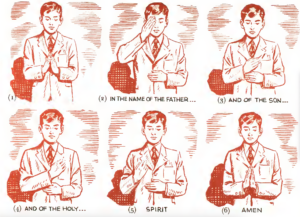
 First Sorrow: Mary Hears the prophecy of Simeon in the Temple
First Sorrow: Mary Hears the prophecy of Simeon in the Temple Second Sorrow: Mary flees with Joseph into Egypt to save Jesus
Second Sorrow: Mary flees with Joseph into Egypt to save Jesus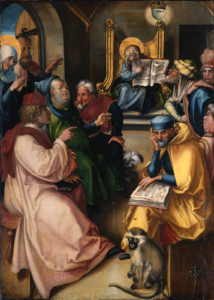 Third Sorrow: Mary loses Jesus and finds Him again in the Temple
Third Sorrow: Mary loses Jesus and finds Him again in the Temple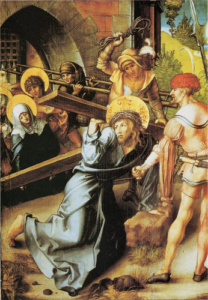 Fourth Sorrow: Mary meets Jesus carrying the cross on the way to Calvary
Fourth Sorrow: Mary meets Jesus carrying the cross on the way to Calvary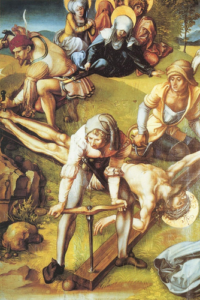 Fifth Sorrow: Mary is present at the Crucifixion and Death of Jesus
Fifth Sorrow: Mary is present at the Crucifixion and Death of Jesus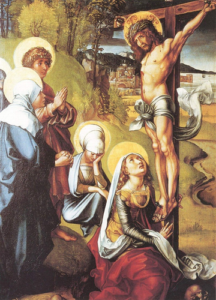 Sixth Sorrow: Mary receives the dead body of Jesus in her arms
Sixth Sorrow: Mary receives the dead body of Jesus in her arms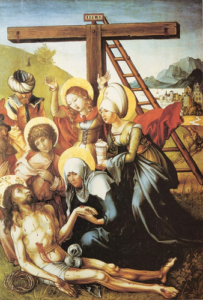 Seventh Sorrow: Mary accompanies Jesus to His Burial
Seventh Sorrow: Mary accompanies Jesus to His Burial
https://shorturl.fm/TbTre
https://shorturl.fm/9fnIC
https://shorturl.fm/m8ueY
https://shorturl.fm/5JO3e
https://shorturl.fm/bODKa
https://shorturl.fm/m8ueY
https://shorturl.fm/TbTre
https://shorturl.fm/YvSxU
Akila – На Чёрном Мерине скачать бесплатно и слушать онлайн https://shorturl.fm/7x7BH
Таня Буланова – Стерпится-слюбится скачать песню на телефон и слушать бесплатно https://shorturl.fm/Al1td
Samoel – Воин скачать песню в mp3 и слушать онлайн https://shorturl.fm/9iTxF
Gercek Feat. & Мэлли – Seviyorum (Aurum Tunes Remix) скачать и слушать mp3 https://shorturl.fm/oJ1h2
Lubimka & Dani Raid – Нас Не Поймут скачать песню и слушать онлайн https://shorturl.fm/gHZU4
Modestov & Rodionov – – Снегири (Иванушки Int. Cover) скачать песню бесплатно в mp3 и слушать онлайн https://shorturl.fm/C3Z3Z
Bakhtin – Королева скачать песню и слушать бесплатно https://shorturl.fm/XDP70
SAFIN – Не Одевайся скачать песню и слушать бесплатно https://shorturl.fm/9xUG5
https://shorturl.fm/XIZGD
https://shorturl.fm/N6nl1
https://shorturl.fm/a0B2m
https://shorturl.fm/5JO3e
https://honda-fit.ru/forums/index.php?autocom=gallery&req=si&img=7331
https://mazda-demio.ru/forums/index.php?autocom=gallery&req=si&img=6438
https://vitz.ru/forums/index.php?autocom=gallery&req=si&img=4874
https://hrv-club.ru/forums/index.php?autocom=gallery&req=si&img=7098
https://mazda-demio.ru/forums/index.php?autocom=gallery&req=si&img=6524
http://passo.su/forums/index.php?autocom=gallery&req=si&img=4296
https://shorturl.fm/XIZGD
http://wish-club.ru/forums/index.php?autocom=gallery&req=si&img=5375
http://passo.su/forums/index.php?autocom=gallery&req=si&img=4332
https://shorturl.fm/bODKa
https://shorturl.fm/6539m
https://shorturl.fm/9fnIC
https://shorturl.fm/a0B2m
https://shorturl.fm/FIJkD
https://shorturl.fm/m8ueY
Bahh Tee feat. Turken – Иди Дальше скачать и слушать mp3 https://shorturl.fm/ljwC2
Анита Цой – Поздно скачать и слушать песню бесплатно https://shorturl.fm/e8SYh
Alya Dey – Без Тебя скачать и слушать онлайн https://shorturl.fm/IxJy7
Maria Farb – Прямо За Мной (DJ Alex Storm & Winstep Remix) скачать бесплатно и слушать онлайн https://shorturl.fm/lNcYT
Carite – Родник скачать mp3 и слушать онлайн https://shorturl.fm/U2z60
Никита Златоуст – Вопреки Всему скачать mp3 и слушать бесплатно https://shorturl.fm/e25rK
MEN1ALITET & !AYO – Крик скачать и слушать песню https://shorturl.fm/1j2de
Звери – Чайка скачать песню бесплатно в mp3 и слушать онлайн https://shorturl.fm/oUk57
Рада Рай feat. Александр Шато – Загадай скачать и слушать песню https://shorturl.fm/w4Jx6
https://vitz.ru/forums/index.php?autocom=gallery&req=si&img=4805
https://vitz.ru/forums/index.php?autocom=gallery&req=si&img=5093
https://honda-fit.ru/forums/index.php?autocom=gallery&req=si&img=7229
https://vitz.ru/forums/index.php?autocom=gallery&req=si&img=4887
https://hrv-club.ru/forums/index.php?autocom=gallery&req=si&img=7093
https://mazda-demio.ru/forums/index.php?autocom=gallery&req=si&img=6560